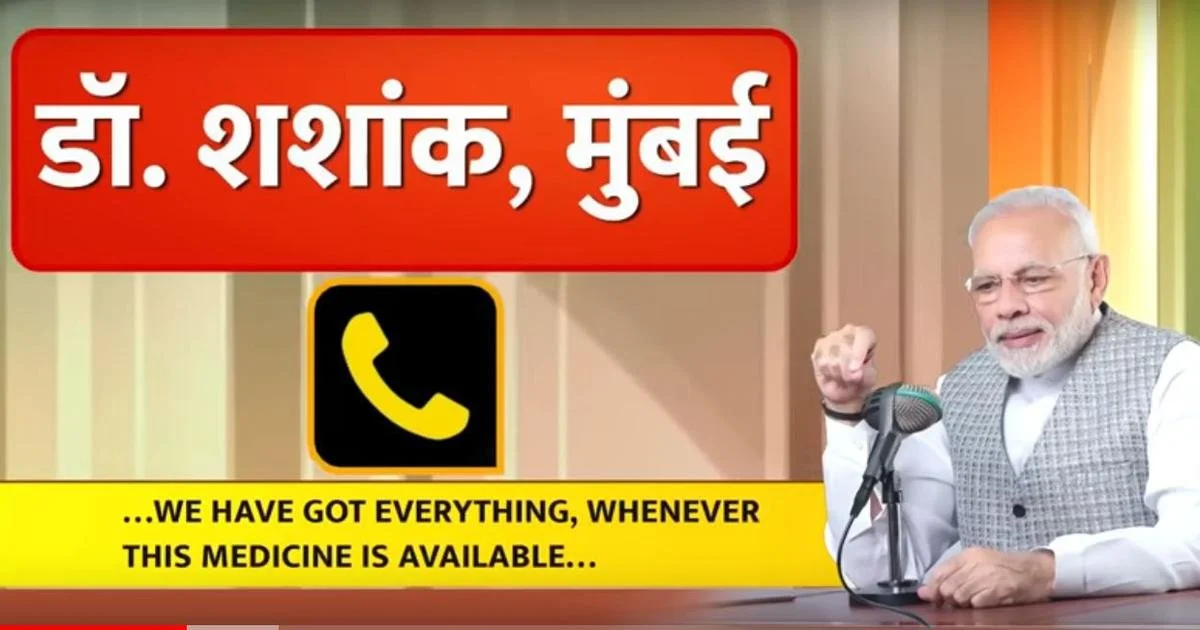A Mann ki Baat on Covid-19
Prime Minister Narendra Modi's Mann ki Baat radio show on April 25.
Dr Sanjay Nagral explains why he’s disturbed by some claims made by Dr Shashank Joshi on Prime Minister Modi’s latest radio show.
Sanjay Nagral
Apr 30, 2021, Scroll.in
Hello, Dr Shashank Joshi. It was indeed good to hear you in a one-to-one chat with Prime Minister Narendra Modi on his Mann Ki Baat radio show on April 25. Such opportunities are rare. Your substantial involvement in Maharashtra’s Covid-19 task force and hard work are admirable. It was good to see you calling out the indiscriminate use of drugs like remedesevir. It was also heartening to hear you request Indians not to panic and hold out hope to millions of people who would have listened in.
As your interaction was drawing to a close you made some statements: “We have got the world’s best treatment available [in India]. India’s recovery rate is the highest [in the world]...If we compare with Europe and America, we observe that our patients are getting well by our treatment protocol.”
One would normally gloss over this as politeness, a natural deference to authority or even an attempt to promote positivity. However, this disturbed me. I think it is worth explaining publicly why it did so – even in these terrible times when we should be avoiding arguments. Because it is emblematic of a tendency that has partly contributed to the current situation and which needs urgent correction.
People like you and me working in Indian healthcare have had the opportunity to know about the world and to travel to other countries to understand their healthcare systems. This gives us the unique capacity to understand India’s strengths and limitations. Ordinary people don’t. For them, what they encounter in their daily lives is what they believe healthcare should be.
The word “best” that you used is quite nebulous in the context of healthcare. Even in Covid-19, the strength of a nation’s healthcare response is being measured by certain objective parameters, data and outcomes. It is also assessed by how equitable and accessible it is. This includes preventable deaths.
You know that we are currently doing very badly on this, even compared to some of our South Asian neighbours. And that whilst there have been many heroic healthcare workers who have sacrificed their lives, we have performed badly on the systemic scale. The recovery rate, a peculiarly Indian parameter not used in global data, merely reflects the large number of Covid-19 cases.
In fact, the word “best” when used in health care is actually a hyperbolic marketing gimmick: we often see the terms “best doctor”, “best hospital” or “best treatment” . It is not a sound public health term.
If we doctors echo the narrative that “India is doing better than the rest of the world”, we are playing into the hands of a political class who want our people to believe this. It is to their advantage to promote such an idea.
A watchdog role
As people of science, one of our fundamental tenets is to be self-critical and even dispassionate. In fact, the medical profession currently has a special responsibility to serve as a watchdog in the public space. In our culture, doctors can punch well above their weight and we should utilise that in the interest of our citizens. We must politely but firmly differ from the state. This is needed right now as never before.
A culture of gloating and smug satisfaction has partly led to the current situation in India. The precursor to this was the trope of how India has been medically advanced far back in our history. This has also created fertile ground for a lot of pseudo-science, which has hampered our collective efforts to control Covid-19.
The current collective focus on mitigation and saving lives would be more effective if we remove those cobwebs of false achievement.
If indeed you or any of our esteemed colleagues have that rare opportunity for a one-to-one with our prime minister in the future, they could consider saying, “Mr Prime Minister, our healthcare system is responsive but has shortcomings. We are there to help you to rectify them. Please focus on improved funding, strengthening public health and set an example for our people by following all precautions.”
That way, you would have spoken the Mann ki Baat of a lot of healthcare workers in India.

